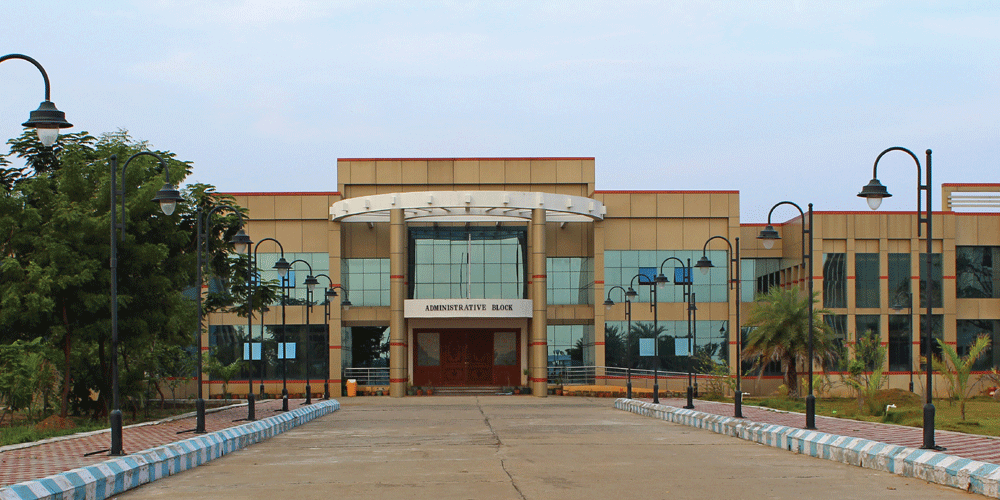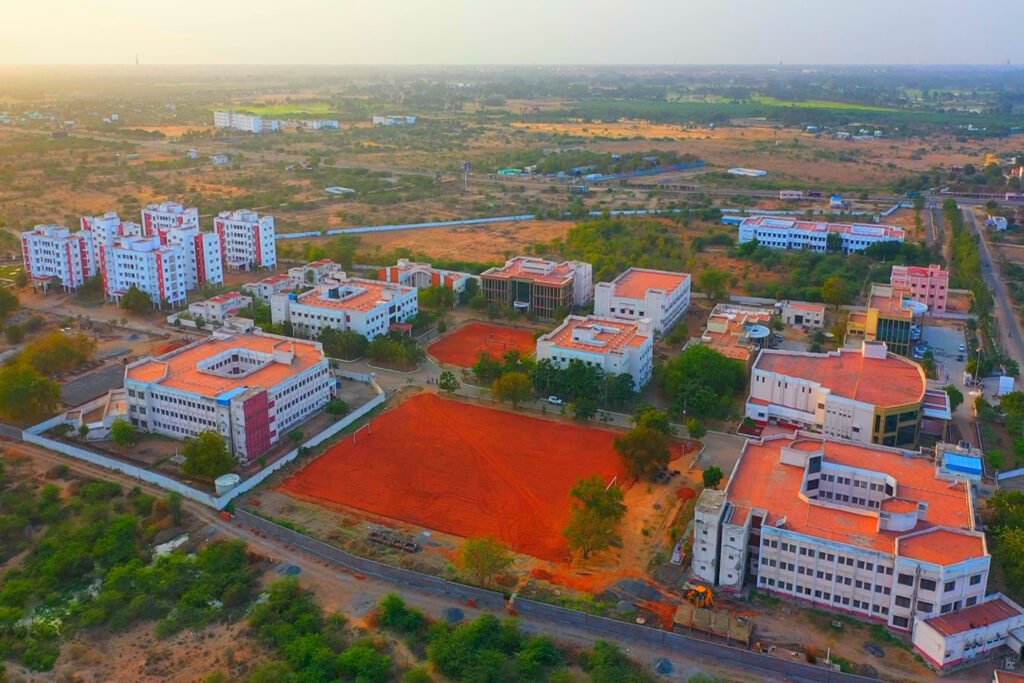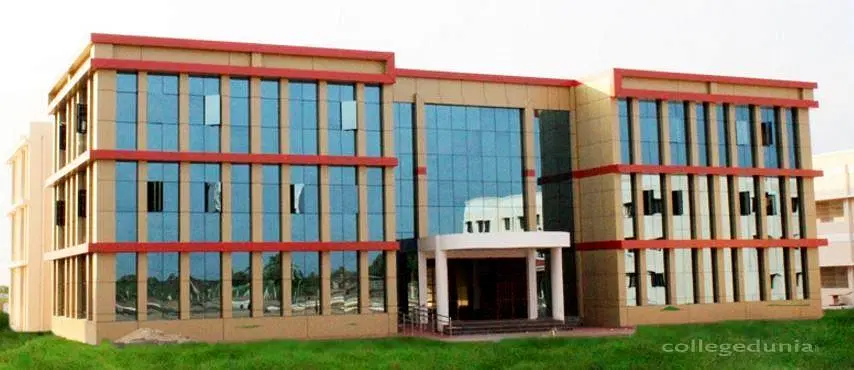



The Tamil Nadu National Law University
Dindigul Main Road, Navalurkuttappattu,
Tiruchirappalli – 620 027, Tamil Nadu, India


FAX: +91 431 269210
Admission to the B.A., LL.B. (Hons.) The degree Programme is purely on the basis of merit as assessed through a Common Law Admission Test conducted for the purpose. Classes usually begin on 1st week of July every year.
The number of seats
1. B.A. LL.B.(Hons.) – Maximum intake of 60 students
Admissions to these programs are on merit, subject to rules of reservation, through the Common Law Admission Test only.
Seats Break up
Category | B.A. LL.B. (Hons.) | B.Com. LL.B. (Hons.) |
AI – GENERAL (UR) | 9 | 9 |
AI – SC | 5 | 5+1* |
AI – ST | 1* | 0 |
Wards of Kashmiri Migrants and Kashmiri Pandits/ Kashmiri Hindu Families (Non-Migrants) | 0 | 1* |
AI – OBC | 14+1* | 14 |
TN – GENERAL (UR) | 8 | 8 |
TN – GSSQ – GENERAL | 1* | 0 |
TN – ST | 1* | 0 |
TN – SC(A) | 0 | 0 |
TN – GSSQ – SC(A) | 0 | 1* |
TN – SC(O) | 4 | 4 |
TN – MBC & DNC | 5 | 5+1* |
TN – BC(M) | 1* | 0 |
TN – GSSQ – BC (M) | 0 | 1* |
TN – BC (O) | 6 | 6+1* |
TN – GSSQ – B.C (O) | 1* | 0 |
NRI Parent/Guardian** (OR)OCI Parent/Guardian** | 3 | 3 |
Categories for Horizontal Reservation | ||
TN SAP | 1+1* | 1 |
AI SAP | 1 | 1+1* |
Eminent Sports Persons under T.N. Quota | 1 | |
Sons/daughters of Ex-Servicemen under T.N. Quota | 1 | |
Fees
Particulars of fees etc. | Amount (Rs.) |
Tuition Fee | 1,00,000/- p.a |
Student Welfare Fund | 1,000/- p.a |
Examination Fee | 2,000/- p.a |
Library Fee | 5,000/- p.a |
Moot Court, Seminars and Other Co-curricular Activities Fund | 3,000/- p.a |
Particulars of user charges | |
Room Rent | 12,000/- p.a |
Mess Charges | 30,000/- p.a |
Internet | 5,000/- p.a |
Electricity | 12,000/- p.a |
Generator Diesel | 5,000/- p.a |
Water | 12,000/- p.a |
Security | 3,000/- p.a |
Sports and Games facilities | 3,000/- p.a |
Particulars of one-time payments | |
Campus Development Fund Fee | 5,000/- |
Admission Fee | 5,000/- |
Particulars of refundable deposits | |
Library Deposit | 5,000/- |
Hostel Deposit | 10,000/- |
Mess Deposit | 5,000/- |
Total amount for candidates who studied in the Tamil Nadu State Board | 2,23,000/-
(1,17,000/-. for TN SC/ST; 1,23,000/- for TN First Generation Graduate) |
Eligibility Certificate Fees
(For candidates who have passed the +2/H.S.C examinations in board other than the Tamil Nadu Higher Secondary Education Board) | 500/- |
Total amount for candidates who studied in boards other than the Tamil Nadu State Board | 2,23,500/-
(2,17,500/- for All India SC/ST; 1,17,500/- for TN SC/ST) |
Total amount for candidates admitted under Tamil Nadu Government School Students’ Quota | Nil. The fees are borne by the Govt. of Tamil Nadu. |
Admission to the B.COM., LL.B. (Hons.) The degree Programme is purely on the basis of merit as assessed through a Common Law Admission Test conducted for the purpose. Classes usually begin on 1st July every year.
The number of seats
B.Com. LL.B.(Hons.) – Maximum intake of 60 students
Admissions to these programs are on merit, subject to rules of reservation, through the Common Law Admission Test only.
Seats Break up
Category | B.A. LL.B. (Hons.) | B.Com. LL.B. (Hons.) |
AI – GENERAL (UR) | 9 | 9 |
AI – SC | 5 | 5+1* |
AI – ST | 1* | 0 |
Wards of Kashmiri Migrants and Kashmiri Pandits/ Kashmiri Hindu Families (Non-Migrants) | 0 | 1* |
AI – OBC | 14+1* | 14 |
TN – GENERAL (UR) | 8 | 8 |
TN – GSSQ – GENERAL | 1* | 0 |
TN – ST | 1* | 0 |
TN – SC(A) | 0 | 0 |
TN – GSSQ – SC(A) | 0 | 1* |
TN – SC(O) | 4 | 4 |
TN – MBC & DNC | 5 | 5+1* |
TN – BC(M) | 1* | 0 |
TN – GSSQ – BC (M) | 0 | 1* |
TN – BC (O) | 6 | 6+1* |
TN – GSSQ – B.C (O) | 1* | 0 |
NRI Parent/Guardian** (OR)OCI Parent/Guardian** | 3 | 3 |
Categories for Horizontal Reservation | ||
TN SAP | 1+1* | 1 |
AI SAP | 1 | 1+1* |
Eminent Sports Persons under T.N. Quota | 1 | |
Sons/daughters of Ex-Servicemen under T.N. Quota | 1 | |
Fees
Particulars of fees etc. | Amount (Rs.) |
Tuition Fee | 1,00,000/- p.a |
Student Welfare Fund | 1,000/- p.a |
Examination Fee | 2,000/- p.a |
Library Fee | 5,000/- p.a |
Moot Court, Seminars and Other Co-curricular Activities Fund | 3,000/- p.a |
Particulars of user charges | |
Room Rent | 12,000/- p.a |
Mess Charges | 30,000/- p.a |
Internet | 5,000/- p.a |
Electricity | 12,000/- p.a |
Generator Diesel | 5,000/- p.a |
Water | 12,000/- p.a |
Security | 3,000/- p.a |
Sports and Games facilities | 3,000/- p.a |
Particulars of one-time payments | |
Campus Development Fund Fee | 5,000/- |
Admission Fee | 5,000/- |
Particulars of refundable deposits | |
Library Deposit | 5,000/- |
Hostel Deposit | 10,000/- |
Mess Deposit | 5,000/- |
Total amount for candidates who studied in the Tamil Nadu State Board | 2,23,000/-
(1,17,000/-. for TN SC/ST; 1,23,000/- for TN First Generation Graduate) |
Eligibility Certificate Fees
(For candidates who have passed the +2/H.S.C examinations in board other than the Tamil Nadu Higher Secondary Education Board) | 500/- |
Total amount for candidates who studied in boards other than the Tamil Nadu State Board | 2,23,500/-
(2,17,500/- for All India SC/ST; 1,17,500/- for TN SC/ST) |
Total amount for candidates admitted under Tamil Nadu Government School Students’ Quota | Nil. The fees are borne by the Govt. of Tamil Nadu. |

Male students: Men’s Hostel and Mess for Men’s.
Female students: Women’s Hostel and Mess for Women.
Hostel amenities:
Each student is provided a cot, cupboard, chair, and desk
Hot water and Laundry facilities
24*7 Electricity and Internet Connectivity
Please note, students are advised to bring their own mattresses, curtains, and bed linen, as well as blankets and warm clothing for cold weather during November-January.
The wardens stay on campus and students are free to approach them regarding any problem, inconvenience, or ill health.
Dining & Catering
Timings:
Breakfast: 8:30 AM – 10:30 AM
Mid-morning: 10:30 AM – 12:00 Noon
Lunch: 1:00 PM – 03:00 PM
Evening Snacks: 3:00 PM – 05:30 PM
Guest House
A well-furnished guest house with 26 Rooms is at TNNLU. Rooms will be allotted to official guests and parents of students who are visiting TNNLU, as and when the need arises.
Contact: registrar@tnnlu.ac.in

TNNLU is a fully residential learning community. We aim to offer all our students the benefits of belonging to a vibrant and diverse student community – both inside and outside the classroom.
The university offers only the best when it comes to academics, it has very active clubs and committes aiming to hone students’ skills and serve the nearby villages at the same time.
There are perfectly built hostels and all other necessary buildings with a humongous library and well-equipped classrooms. There is 24*7 unlimited Wi-Fi around the campus. All other basic amenities are there

Legal Museum
The Legal History Museum was established in the year 2019. It is currently situated in two Halls on the first floor of the library building of TNNLU. The Museum aims to preserve and bring awareness about the importance of South Indian legal history/heritage in particular, along with the national and global legal history/heritage in general, to the visitors and the society. The museum showcases the development of law through the passage of time.
Centre for Labour and Development Studies
The Centre for Labour and Development Studies has been set up to promote interdisciplinary research and further legal awareness about the rights of workers engaged in both the organized and unorganized sectors. The Centre aspires to use an interdisciplinary lens in approaching different aspects of labor law regulation and governance by conceptualizing contemporary issues in labor law in terms of interactions between law and socio-economic development.
Centre for Research & Writing (CRW)
The TNNLU Centre for Research & Writing (CRW) was inaugurated on February 5, 2018by Hon’ble Justice Rajiv Shakdher, High Court of Delhi; Hon’ble Justice T S Sivagnanam, High Court of Madras; Mr. PH Arvindh Pandian, Additional Advocate General, Tamil Nadu; and Mr. Manoj Pandey, Legal Adviser, Competition Commission of India.
Centre for Studies in Access to Justice
Equality is the foundation of all modern systems of law and the administration of justice. The preamble to the Constitution of India aspires to secure to all its citizens JUSTICE, social, economic, and political; and EQUALITY of status and of opportunity; and to promote among them all.
The campus also has the following facilities:

The Internships and Placements Committee of TNNLU (IPC) comprises of the Dean of Internships and Placements and a group of dedicated and committed student members who aim to facilitate internship and placement opportunities for the student community, amongst other things. Given the intensity and significance of the work, the IPC has been subdivided into 6 sub-committees i.e., Communications, Drafting, Data Management, Event Management, Email Maintenance, and Brochure Management Teams. Each team has been handpicked to increase efficiency in facilitating career opportunities for the student community.
The IPC, besides facilitating numerous internship and placement opportunities, has also initiated a bi-monthly “Opportunities Ahead” series to provide career guidance for our students by facilitating
interactions between industry experts in and out of the legal field. In the past, we’ve had speakers from diverse domains such as legal tech, civil services, judicial services, litigation, academia, corporate law, music & arts, etc.
The IPC is also responsible for conducting the yearly internship evaluation.